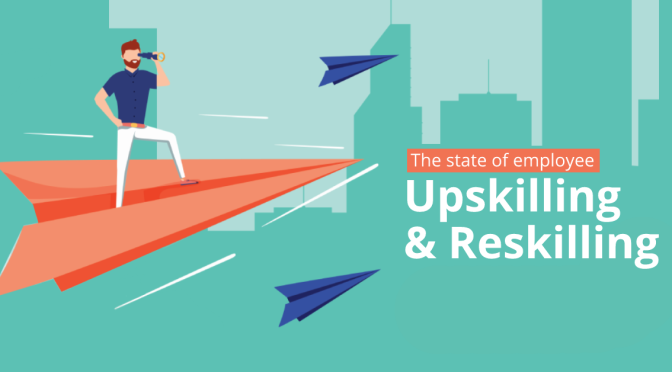In today’s rapidly changing workplace, staying ahead requires more than just showing up to the office every day. Industries are evolving at a breakneck pace, with new technologies, tools, and best practices constantly emerging. To keep up, employees must continuously enhance their skill sets through professional development courses and workshops. Upskilling is not only beneficial for career growth but essential to remaining competitive in the job market. Here’s why:
1. Adapting to Technological Advancements
Technology is transforming industries across the board. Automation, artificial intelligence, and digital platforms are becoming integral parts of various sectors. To stay relevant, employees need to familiarize themselves with these technologies. Professional development courses focused on digital literacy, data analysis, or new software tools enable workers to integrate seamlessly into this evolving tech-driven environment.
2. Remaining Competitive in the Job Market
The job market is competitive, and companies are increasingly looking for employees with up-to-date skills. Those who proactively seek out learning opportunities stand out to employers. Whether it’s through industry certifications, short courses, or workshops, continually upskilling enhances your resume, making you more attractive to current or prospective employers.
3. Boosting Career Growth and Opportunities
Professional development doesn’t just help employees keep up with changes—it also opens doors to new opportunities. By expanding skill sets, employees can take on more responsibilities or move into new roles within their organization. Leadership, project management, or even specialized technical training can lead to promotions or lateral moves that align better with personal career aspirations.
4. Increasing Job Satisfaction and Engagement
Ongoing learning stimulates personal growth, which can lead to greater job satisfaction. Employees who feel they are evolving and improving their capabilities are more engaged in their work. This heightened engagement often results in better performance and increased motivation, reducing burnout and boosting morale.
5. Meeting Organizational Goals
From a business perspective, employees who regularly engage in upskilling are assets to their organization. They bring fresh ideas, improved efficiency, and innovative solutions to challenges. Companies with a skilled workforce are better positioned to meet organizational goals, stay ahead of competitors, and adapt to industry changes.
6. Future-Proofing Your Career
No one can predict the future of work with absolute certainty. Jobs that exist today may not exist in 10 years. By actively participating in professional development, employees can future-proof their careers. Continuous learning helps individuals stay versatile and ready to adapt to new job roles, industries, or sectors as they emerge.
7. Developing Soft Skills for the Modern Workplace
While technical skills are important, soft skills like communication, leadership, emotional intelligence, and problem-solving are also critical in today’s workplace. Professional development workshops focused on these areas can be just as valuable as technical training. These soft skills enable individuals to collaborate effectively, manage teams, and handle conflicts, which are essential for long-term career success.
8. Building a Culture of Lifelong Learning
Finally, upskilling fosters a culture of lifelong learning, which is key to personal and professional growth. In workplaces that encourage and value learning, employees feel empowered to pursue new knowledge. This culture not only benefits the individual but also creates a more dynamic, innovative, and adaptable organization as a whole.
Conclusion
The workplace is no longer a static environment where employees can rely on the skills they learned when they first entered the workforce. The need to grow, learn, and adapt continuously is greater than ever. By engaging in professional development courses and workshops, individuals not only enhance their own careers but also contribute to the overall success of their organizations. In a world of constant change, upskilling is the key to staying relevant, competitive, and fulfilled in the workplace.
– Michael Robinson









